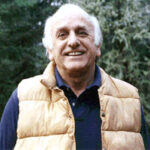Derek Humphry, a tireless champion for the right to die with dignity and one of the most prominent figures in the euthanasia and assisted suicide movements, passed away on January 2, 2025, at the age of 88. His life’s work, rooted in both personal tragedy and deep humanitarian conviction, was dedicated to ensuring that individuals facing terminal illness and intractable suffering had the right to choose the manner and timing of their own death. Through his advocacy, writings, and tireless campaigning, Humphry not only transformed the way society viewed end-of-life choices but also empowered countless individuals to take control of their final narrative.
a tireless champion for the right to die with dignity and one of the most prominent figures in the euthanasia and assisted suicide movements, passed away on January 2, 2025, at the age of 88. His life’s work, rooted in both personal tragedy and deep humanitarian conviction, was dedicated to ensuring that individuals facing terminal illness and intractable suffering had the right to choose the manner and timing of their own death. Through his advocacy, writings, and tireless campaigning, Humphry not only transformed the way society viewed end-of-life choices but also empowered countless individuals to take control of their final narrative.
A Personal Tragedy That Sparked a Movement
Derek Humphry’s path to becoming a leading voice in the right-to-die movement began with profound personal loss. In the late 1970s, Humphry’s beloved wife, Jean, was diagnosed with terminal cancer. Over a painful and drawn-out period, Jean’s health deteriorated as the disease progressed, and she faced intense suffering. For Derek, this period was one of deep despair and frustration as he witnessed the limitations of medical care in alleviating her pain and suffering. The medical system offered little in terms of relief, and at the time, the law provided no mechanism to allow patients to control how or when they passed.
In 1975, after Jean’s suffering had become unbearable, Humphry made the heart-wrenching decision to help her end her life peacefully. He assisted her in what was, at the time, a legally murky and controversial decision—one that would lead him to a profound commitment to fight for the rights of others to choose a dignified death. His experience opened his eyes to the systemic failure to provide compassionate options for those in similar positions and solidified his belief that individuals facing terminal illnesses should have the freedom to make informed decisions about the end of their lives.
The Founding of the Hemlock Society
In the aftermath of Jean’s death, Derek Humphry channeled his grief into action. In 1980, he founded the Hemlock Society, a nonprofit organization focused on advocating for end-of-life choices and legalizing physician-assisted suicide in the United States. His vision for the Hemlock Society was clear: he sought to create a space where individuals could learn about their rights and receive support if they wished to make the difficult decision to end their own lives. The society worked tirelessly to educate the public and lawmakers about the importance of choice in dying, advocating for both medical and legal reforms to support this cause.
Under Humphry's leadership, the Hemlock Society became a powerful force, promoting dialogue on issues such as euthanasia, assisted suicide, and the broader concept of personal autonomy in death. The organization gained national attention, and while its work was controversial, it sparked an essential conversation about the rights of the terminally ill. Despite facing significant opposition from religious and conservative groups, Humphry’s advocacy gradually began to shift public perception and open the door for legislative changes in various states.
The Creation of Final Exit Network
As the Hemlock Society gained traction, Humphry realized that there was a need for an organization that offered more direct support to those who wanted to die on their own terms. In 2004, he founded the Final Exit Network, a nonprofit dedicated to providing guidance and assistance to people who were seriously ill and wished to end their lives in a peaceful, self-directed manner. The network was created with a deep respect for autonomy and choice, offering individuals the resources to explore their options and providing assistance in navigating the complex legal and ethical issues surrounding euthanasia and assisted suicide.
Final Exit Network was different from other organizations advocating for the right to die, as it focused not just on advocacy but also on offering hands-on support to people who had made the decision to end their lives. The group’s services were designed to provide information about self-assisted dying methods, to help individuals identify ways to minimize suffering, and to guide them through a process that would allow them to pass on their own terms, while avoiding unnecessary pain and distress.
Humphry’s work with the Final Exit Network was not without controversy. He and his colleagues faced significant legal challenges, with several states accusing the organization of assisting in suicides or promoting euthanasia in illegal ways. Despite these challenges, Humphry and the Final Exit Network were undeterred, continuing their work with the same commitment to human dignity and autonomy that had driven Humphry throughout his career.
The Publication of Final Exit
In addition to his work with the Hemlock Society and the Final Exit Network, Derek Humphry was also a prolific writer. His most influential work, Final Exit: The Practicalities of Self-Deliverance and Assisted Suicide for the Dying, published in 1991, became an international bestseller and was hailed as a groundbreaking book that brought the discussion of euthanasia and assisted suicide into the mainstream.
Final Exit was a comprehensive, straightforward guide for individuals who wanted to explore their options for ending their lives in a way that was peaceful and controlled. The book offered practical advice on methods for self-deliverance and assisted suicide, while also providing moral, legal, and philosophical considerations for those contemplating their end. Written with empathy and understanding, Final Exit was a radical book in its time, directly challenging the prevailing notion that only medical professionals could determine when and how a person should die.
The book’s publication was not without controversy, with critics accusing Humphry of promoting suicide and euthanasia. However, it also gained a devoted following of people who were struggling with terminal illnesses, chronic pain, and mental health issues, and who found in Final Exit a compassionate voice and a resource to help them navigate their own difficult choices. The book was also mentioned in the bestselling memoir Nomadland, further cementing its cultural relevance and importance.
Humphry continued to refine his message and support others through writing. He went on to publish several other books, including The Right to Die (2001) and Jean’s Way: A Love Story (2005), which chronicled his personal journey with his wife’s death and his evolving views on the ethics and legality of euthanasia. These books, too, contributed to the growing conversation about the right to die and played an important role in shifting public opinion on the subject.
A Legacy of Advocacy and Compassion
Derek Humphry’s legacy is one of courage, compassion, and unwavering advocacy for the rights of individuals to determine the course of their own lives, including their deaths. Through his tireless efforts, he galvanized the right-to-die movement, inspired countless people to speak out for their own autonomy, and provided support for those in the most vulnerable positions. His work brought attention to the fact that many people suffering from terminal illnesses, chronic pain, or debilitating conditions wanted control over how and when they died—and they deserved to have their wishes respected.

Humphry’s contributions to the right-to-die movement were instrumental in the push for legal reforms around the world. While his work was not always well-received, especially by opponents who viewed his efforts as morally questionable, his advocacy contributed to landmark legal victories in some U.S. states, such as Oregon, Washington, and California, which passed laws allowing for physician-assisted suicide. Globally, Humphry’s work also influenced discussions in countries like the Netherlands and Switzerland, where euthanasia and assisted suicide are legally regulated.
His dedication to the cause did not stop with his writing or organizational leadership. He remained deeply involved in conversations around medical ethics, attending conferences, engaging with lawmakers, and providing testimony for those seeking to change the law. Derek Humphry understood that the right to die with dignity was not just about individual choice—it was about shifting society’s understanding of suffering, compassion, and human rights.
A Man of Deep Convictions
Derek Humphry was a man of principle, always willing to stand up for what he believed was right, regardless of the personal or professional cost. His critics often misunderstood his work, accusing him of promoting death rather than valuing life. But for Humphry, the fight for the right to die was always about compassion—giving individuals the opportunity to live life on their own terms, including the ability to end it when their suffering became too great.
As a father, husband, and friend, Derek Humphry was loved and admired for his warmth, his humility, and his unyielding commitment to helping others. He was a man who saw death not as something to be feared but as an inevitable part of life that, when faced with dignity and autonomy, could be a peaceful and liberating experience.
Derek Humphry is survived by his children, grandchildren, and the countless individuals whose lives were touched by his work. His impact on the world, especially for those who sought control over their own death, will never be forgotten.
His death, like the life he lived, reminds us all that the fight for human rights is never finished—especially when it comes to the right to choose one’s own end. In the words of Derek Humphry himself, “Death is a part of life. It is not something to be feared. It is something to be understood, and to be handled with grace and dignity.”
As we remember Derek Humphry, we celebrate his unwavering commitment to a cause that remains as controversial as it is essential: the right of individuals to choose the manner and timing of their death. His legacy will live on in the lives of those he helped, the laws he influenced, and the countless people who found strength in his words and actions.


